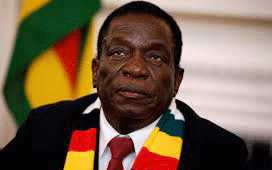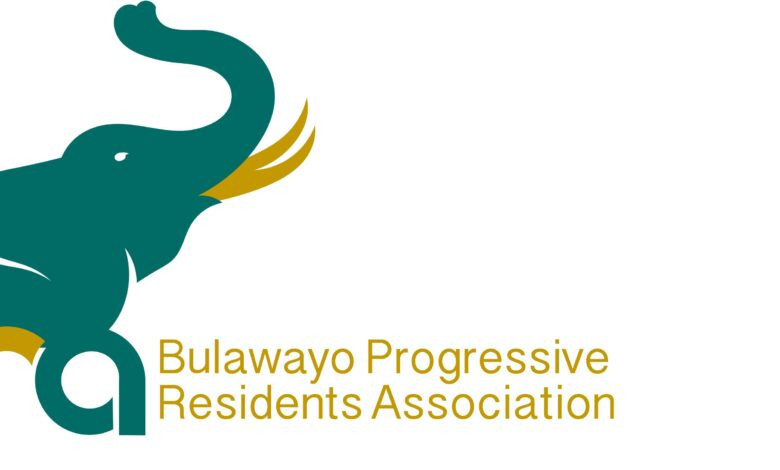
In April 2023, South Africa’s President Cyril Ramaphosa held a press conference announcing; “The governing party, the ANC, has taken the decision that it is prudent that South Africa should pull out of the ICC [International Criminal Court] largely because of the manner in which the ICC has been dealing with these types of problems [arrest warrants for indicted heads of states].”
In the hours following, the President's Office withdrew the statement, clarifying that South Africa remained a signatory to the ICC.
Amid the confusion this caused, it emerged that the President was misadvised.
Despite declaring immediate withdrawal, South Africa would continue to be bound by its obligations to the ICC for another 12 months.
The erroneous statement, however, manifested strong sentiment within the ANC about withdrawing from the ICC, which had gained some currency since 2016 when indicted former Sudanese dictator Omar Al Bashir visited South Africa.
The erroneous statement (smoke) was backed by some fire amongst some elements of the ANC and South African government.
The government of Zimbabwe (GoZ) gazetted General Notice 635 2023, Public Procurement and Disposal of Public Assets Act [Chapter 22:23], on May 5.
The notice declared that the procurement of construction, medical, transport, laboratory, and hospital equipment and repair in the health sector was a matter of “national interest” and, as such, would not be publicly disclosed.
- Zim headed for a political dead heat in 2023
- Record breaker Mpofu revisits difficult upbringing
- Tendo Electronics eyes Africa after TelOne deal
- Record breaker Mpofu revisits difficult upbringing
Keep Reading
Though brief in text, the notice cast long shadows, portending profound negative reputational and constitutional implications for the state.
It also fell afoul of the law it purported to be issued under, The Public Procurement and Disposal of Public Assets Act, which requires transparency and accountability in public procurement, but with some exceptions in the “…interests of defence, public security, or the national interests of Zimbabwe.” regarding “…any construction works or class of such works …”.
The notice triggered a public uproar.
Subsequently, the GoZ issued a press statement on May 10, 2023, declaring General Notice 635 “a nullity” because its publication was unsanctioned, lacking the chief secretary to the President and Cabinet’s signature.
The incidents, evident confusion, and contradictions enlivened the debate about accountability and transparency in government.
It also animated a broader conversation about governance, begging how a notice with the force of law was published without due process and authorisation.
While it was easy to correct misstatements in the South African incident with further clarifying statements, the Zimbabwe administration’s current attempt at righting the wrong here may be insufficient.
One wonders whether a general notice issued through a government gazette can be rescinded by a press statement from the chief secretary to the President and Cabinet.
Is it possible that we are witnessing embarrassing ineptitude in the presidency?
One hopes that this time, the president’s office has crossed its t's and dotted its i's.
Otherwise, this incident can potentially expose what can only be systematic and systemic rot, incompetence, disregard for procedure, and negligence in the highest office in the land.
The preceding questions require public debate and further clarification from the state.
In this article, I intend to do two things.
First, this article will explore whether the malpractice is smoke indicating a more significant fire in the executive.
Second, I attempt a counterfactual analysis of the implications of the notice had the chief secretary not published a press statement rescinding it.
The analysis considers the principle of national interest, what it is, concerning this matter, and when it should be deployed.
It also considers how disclosing information regarding biomedical, medical, and construction equipment and materials might aid the “national interest”.
The fact of an unauthorised statutory instrument entering the public sphere through official channels is smoke that raises serious concerns.
Comparatively, Zimbabwe’s general notice is worse than South Africa’s “erroneous statements,” which had the saving grace of not being enforceable at law.
While the incidents indicate administrative insufficiency in both countries, the balls being dropped in Zimbabwe are much larger and have dire consequences.
The publication and subsequent retraction of the notice, all without explanation, indicate gross incompetence, maladministration, and a lack of integrity in the executive.
How could something so obviously illegal, with such an egregious misdirection towards national interest, even make it as a draft for consideration by the highest office in the land?
Do we have a system of checks and balances and quality control in the president’s office?
Where were all the president's men (lawyers) as this legal nullity was being transmitted?
Where were Parliament and its legal committee tasked with reviewing legislation, including statutory instruments and such notices?
Who were these incompetent and trigger-happy people surrounding the president?
In this situation, was the president of Zimbabwe in safe hands, nay, was the country and its administration safe? Which heads will roll for this embarrassment?
General Notice 635 entered Zimbabwe’s body politic when the state, leaders, and politically connected business persons were frantically defending against allegations of money laundering and illicit financial flows arising from Al Jazeera Investigative Unit’s Gold Mafia documentary series.
It also lands barely six months after the US Department of the Treasury’s Office of Foreign Assets Control (OFAC) added two business entities and four individuals, including Kudakwashe Tagwirei and the president’s son, to the list of sanctioned entities and individuals.
Meanwhile, the country continues to fare dismally across corruption and integrity indices, ranking 100/114 countries on the Index of Public Integrity (IPI), 98/129 on the Global Transparency Index (TI), 157/180 on the Corruption Perception Index (CPI),) and 33/54 African countries on the Ibrahim Index on African Governance (IIAG).
The notice’s premise of “national interest” as a reason for the prohibition of disclosures about public interest procurement in the health sector is baffling.
Transparency in public procurement processes is within the “national interest”.
In the face of Zimbabwe’s poor international image, such accountability would be a positive reflection of the president’s “open for business” narrative and valuable currency in generating trust for the government.
National interests are known, easily deciphered, and are a common cause that guides a country regarding how it acts (in most cases) on the international stage to ensure that its security, economy, and general well-being are insulated from external threats.
It is a declaration that allows for predictability and exposure rather than opaqueness and secrecy.
When information is protected and disclosure is prohibited, this is usually in the interest of national security.
The preceding understanding allows the public and citizens to make sense of government action or inaction on matters of state at home, but usually abroad.
Hiding procurement processes to advance the population’s well-being in a ministry at home in the name of “national interest” is bad governance.
It does not serve the national interest to raise anxiety about how the government is (ab)using public finances when the country seeks significant inflows of foreign direct investment.
Conversely, disclosure of national interests and procurement processes engenders trust and provides a meaningful measure against which the public can hold the state accountable.
So, what could have been the national interest here?
National interests are not a secret, yet General Notice 635 did nothing to spell out what these were.
Perhaps because there were none, the government did not attempt to contextualise the notice and allay well-founded public fears that it introduced opaqueness in a sector inherently concerned with the public interest and whose procedures must therefore be transparent in the national and public interest.
Our healthcare systems are in a state of collapse.
Disclosure of procurement efforts for services and equipment in that sector evidences the state’s response to public needs and responsibility toward its mandate to protect citizens.
It is worth sharing with the public as a testament to the state’s actions to redress a long-acknowledged malaise.
Ahead of a critical election, such disclosure imbues the ruling regime with much-needed performance legitimacy when it is saddled with political and economic aggrandisement allegations.
The suspicious cameo appearance by General Notice 635 lends itself to multiple suspicions and interpretations.
The ministry concerned was mired in scandal and controversy at the height of the Covid-19 pandemic amid foreign-assisted health care procurement, similar to that in the notice.
These scandals claimed the scalp of then minister of Health Obadiah Moyo and many officials in the ministry.
They brought Drax International to the nation's attention, fronted by Delish Nguwaya, which was charged with severe price inflation of emergency equipment and protective clothing during a pandemic.
More than protecting national interests, the notice appeared to protect personal interests.
When Moyo departed from government, his responsibilities moved to Vice-President Chiwenga.
Given the general’s reputation and own rise to power on the premise of removing “thieves around the president”, the change appeared to be a clean-up exercise meant to bring back sanity and integrity in a critical ministry during a global emergency.
However, General Notice 635 created the impression that the government was attempting to hide information likely to show higher levels of corrupt activities within the sector.
In the above respect, General Notice 635 could have been the manifestation of apparent conflict between national interests around accountability and open government and individuals using the law and the hand of the state and president to protect themselves from public scrutiny and censure for their corrupt actions.
Such actions would continue to sully the images of the state and its leaders with responsibilities in the sectors listed in General Notice 635.
It is these kinds of actions, more than any, that the current amendments to the Criminal Law Codification and Reform Act (Patriotic Bill) seek to guard against that harm to the country’s image.
Given the battering that the country, President Emmerson Mnangagwa, the first family, and their emissaries have received recently on account of the Gold Mafia expose, it is actually in the public interest that the government is more open and transparent in its use of public resources in service to the nation.
Politically, it is more beneficial both at home and abroad for public procurement to be open to scrutiny rather than the opposite.
General Notice 635 would have been a lousy notice that would do little to protect the country's image or Zimbabwe's national interests.
Matters of national interest are known and are known precisely so that state actions are predictable and guided.
In general, the declaration of nondisclosure of the listed elements in the health sector as a matter of national interest is a misapplication of the principle of national interests and a poor scapegoat for an opaque government.
It has serious reputational consequences for the government, state leaders, and relevant ministries.
It also has profound negative implications on the ease of doing business as it takes away transparency, competition, and fairness in major procurements that have previously been riddled with corruption scandals related to the abuse of office and flaunting of procurement procedures.
Accountability is a significant issue in this incident, and the executive must account.
Chiwenga must explain why and how the notice was published and whether all is well in the sector.
Failure to explain these circumstances will continue to fuel speculation about corrupt activities in government.
This harms citizens' trust in their government and the country's attractiveness as a place to do business.
- Dr McDonald Lewanika is a political scientist researching and working on politics, governance, and accountability issues across the public and private sector in Africa. He is the southern Africa regional director for Accountability Lab, and chief of party for the New Narratives on Accountability in Zimbabwe project, but writes in his personal capacity.









